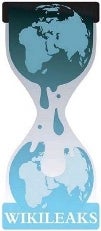

It is hard not to be the center of controversy when you’re a site like WikiLeaks that specializes in exposing information that was never intended for the general public. The whistleblowing, freedom of the press advocate is in hot water again as it is the victim itself of a breach that exposed US State Department communications that had been leaked to it.
It gets sticky quick. You have WikiLeaks which doesn’t go out and do its own spying per se. It is simply the intermediary–a benefactor of the efforts of others who stumble upon, or have privileged access to, information they feel should be shared with the world, but who fear the repercussions of doing so personally. Then you have the sources themselves who may be altruistic lovers of open disclosure, or could have their own agenda behind exposing the information. Then there are the subjects of the leaked information who are at once both villains of whatever insidious information was being withheld from the public, and victims of having said insidiousness made public.

WikiLeaks is a sort of Robin Hood of free speech. It uncovers duplicitous backroom deals, and reveals shady agreements between key players in corporate and government affairs all in the interest of protecting average citizens and consumers. It is like Ralph Nader on steroids.
It is very easy to cross the line, though, from hero to villain. Not all confidential data is created equally, and not all of it should be shared with the public. Some information is secret because of its nefarious nature, but some information is kept secret because it has broader global and national security implications.
Now, the tables are turned. A data breach exposed a WikiLeaks file containing hundreds of thousands of US State Department cables. WikiLeaks has responded by publicly posting the entire collection online–unredacted, and with names of confidential sources exposed.
WikiLeaks has crossed that line. First it became the victim, and now it is has become the villain. It is heroic on some level to reveal information that should be public but is being covered up, but it goes too far when WikiLeaks starts sharing information just for the sake of sharing information–as if all information is equal and no secret is worth keeping.
Exposing the names of political informants and confidential sources could put those individuals and their families at risk. These are people who went out on a limb, and WikiLeaks is sawing the branch.
If you ignore the personal risk, the move by WikiLeaks still does significant harm to United States diplomatic and intelligence gathering efforts around the world. It will be much harder to find cooperative sources if the United States can’t ensure their anonymity.
Imagine how quickly WikiLeaks flow of information would dry up if those who shared information with WikiLeaks were outed. I appreciate the noble ideals of WikiLeaks, but I think it is shooting itself in the foot, and taking down some innocent people along with it.


